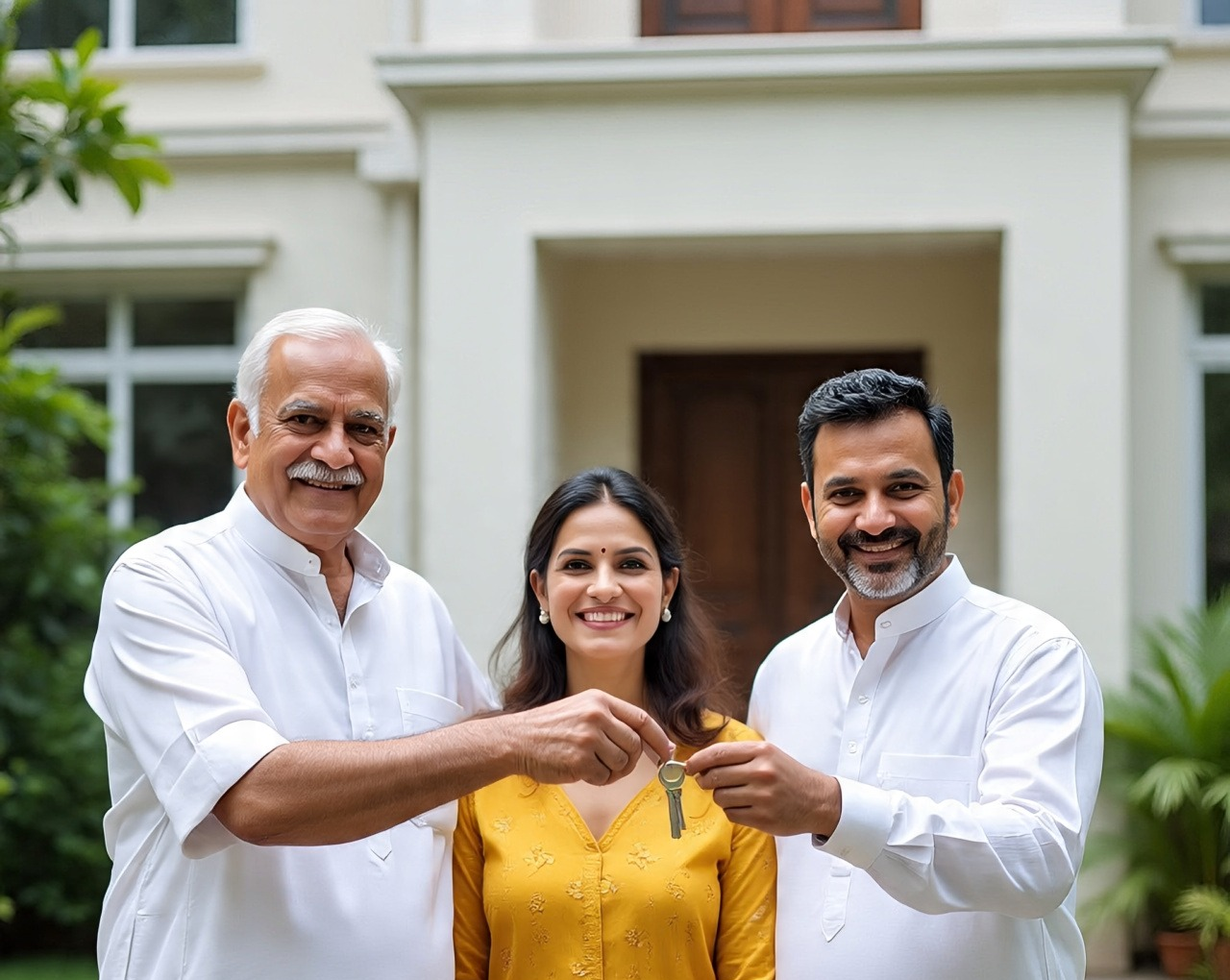First-Time Homebuyer’s Guide to Kerala Real Estate

First-Time Homebuyer’s
Guide to Kerala Real Estate
Buying
your first home is a significant milestone- emotionally, financially, and
practically. In Kerala, where the real estate landscape ranges from bustling
urban developments in Kochi and Trivandrum to serene backwater-side homes in
Alappuzha and hill town villas in Wayanad, making the right choice can feel
overwhelming for a first-time homebuyer.
Whether
you’re a working professional looking for an apartment in the city, an NRI
investing in a future retirement home, or a young couple ready to settle down, this
comprehensive guide will walk you through every step of the journey.
Here’s
your first-time homebuyer’s guide to Kerala real estate, designed to
help you make informed, confident decisions from start to finish.
1. Define Your Budget
Before
looking at property listings or visiting sites, the first and most crucial step
is to determine your budget.
Consider:
- Your monthly income and
expenses
- Loan eligibility and down
payment capacity
- Additional costs like
registration, taxes, and interior furnishing
- Ongoing costs such as
maintenance, property tax, and insurance
Pro tip: In Kerala, you can get
apartments starting from ₹30–40 lakhs in developing suburbs, while villas in
premium areas like Kakkanad or Kowdiar may cost upwards of ₹1 crore.
2. Decide on the Type of Property
Kerala’s
diverse geography and lifestyle options give you plenty of choices:
Apartments
- Ideal for city dwellers or
those who prefer community living.
- Popular in Kochi,
Trivandrum, Calicut, and Thrissur.
Independent
Villas
- Great for those who prefer
privacy and more space.
- Often found in gated
communities or on the outskirts of towns.
Plots
- Suitable if you want to
build your own home.
- Look for well-planned
layouts with road access and approvals.
Gated
Communities
- Offer a mix of apartments
and villas with shared amenities like clubhouses, pools, and security.
3. Choose the Right Location
Location
is one of the most important factors in your decision.
Key Urban Markets:
- Kochi – Kerala’s commercial
capital; excellent for IT professionals and entrepreneurs.
- Trivandrum – Government hub and
growing IT destination; offers good infrastructure and job opportunities.
- Calicut (Kozhikode) – Strong educational and
healthcare facilities; good mix of culture and commerce.
- Thrissur – Cultural capital with
developing real estate and strong NRI interest.
Popular Suburban Areas:
- Kakkanad (Kochi), Kazhakkoottam
(Trivandrum), West Hill (Calicut) – all are IT/investment hotspots
with high appreciation potential.
Tip: Evaluate proximity to your
workplace, schools, hospitals, and transportation before finalizing.
4. Understand the Home Loan Process
Unless
you're purchasing entirely with savings, you’ll likely need a home loan. Kerala
banks and NBFCs offer a range of housing finance products.
Key
Considerations:
- Loan eligibility based on income, age,
credit score
- Interest rate (fixed or floating)
- Down payment (usually 10%–20%)
- Repayment tenure (up to 30 years)
Get
pre-approval if possible—it gives you a clear price range and negotiating edge
with sellers.
Don’t
forget: Compare
processing fees, prepayment terms, and insurance add-ons across lenders.
5. Legal Verification of Property
First-time
homebuyers must be especially cautious about legal due diligence. Here's what
you need to check:
Documents to
Verify:
- Title Deed – Confirms ownership and
whether the property has a clear title.
- Encumbrance Certificate (EC) – Shows if there are any
legal dues or mortgages.
- Land Use Certificate – Confirms if the property
is residential.
- Building Plan Approvals – Ensure the construction
is sanctioned by the municipality.
- RERA Registration – Mandatory for new
projects. Check details on the Kerala RERA website.
Consider
hiring a real estate lawyer to ensure everything is legally sound before
signing the agreement.
6. Visit the Property Site
No matter
how appealing a listing may look online, a site visit is essential.
Here’s what to evaluate:
At the Site:
- Construction quality,
ventilation, and natural light
- Location infrastructure:
roads, public transport, safety
- Developer reputation and
past project timelines
- Neighbourhood profile and
future development potential
Take
photos and notes. Visit at different times of day to understand traffic flow,
noise levels, and lighting.
7. Evaluate the Builder or Seller
If you’re
buying from a builder, especially in a new project, due diligence is critical.
What to Check:
- Previous project delivery
records
- Online reviews and RERA
status
- Financial strength and
reputation in the market
For
resale properties, interact directly with the owner or through a credible
agent. Always ask why the property is being sold and how long it’s been on the
market.
8. Understand Pricing and Cost Breakup
When
budgeting, it’s important to understand the total cost of the property, not
just the per square foot rate.
Total Cost
Includes:
- Base cost of the property
- GST (for under-construction
homes)
- Parking charges
- Clubhouse or amenity charges
- Maintenance deposit
- Registration and stamp duty
(usually around 7–8% in Kerala)
- Interior or furnishing
expenses
Always
ask for a detailed cost sheet from the builder or seller.
9. Registration and Possession Process
Once
you've finalized the property:
Steps to
Follow:
- Sale Agreement – Pay the token amount and
sign the agreement.
- Registration – Done at the local
Sub-Registrar’s Office. Ensure full payment of stamp duty and registration
charges.
- Possession Handover – Collect possession
certificate, original documents, and keys.
- Khata/Property Tax
Registration –
Update the title in your name with the local municipality.
Note: In new apartments, check for
occupancy certificate (OC) and completion certificate (CC) before possession.
10. Tips for NRIs Buying Property in Kerala
Kerala’s
NRI population plays a big role in the state’s real estate. If you're an NRI:
Keep in
Mind:
- You can buy residential or
commercial property, but not agricultural land.
- Appoint a Power of
Attorney (PoA) if you cannot be physically present.
- Ensure funds are repatriated
through NRE/NRO accounts.
- Maintain proper
documentation for overseas transactions to avoid legal or tax issues.
Look for
builders who have NRI support teams or online documentation services for ease
of communication.
11. Invest in Professional Guidance
As a
first-time homebuyer, you may benefit from expert help at key stages:
Professionals to Consider:
- Real estate agent – for property sourcing and
negotiation
- Lawyer – for document verification
and sale deed drafting
- Architect or engineer – for quality checks on
construction
- Loan consultant – for comparing banks and
getting the best financing deal
This
guidance can prevent costly mistakes and ensure smooth transactions.
12. Post-Purchase Essentials
Your
homeownership journey doesn’t end with getting the keys. Here are a few post-purchase
steps:
Immediately
After Purchase:
- Transfer electricity, water,
and internet connections
- Register with local Resident
Welfare Association (if applicable)
- Pay property tax and update
ownership records
- Insure your property against
natural disasters and fire
Final Thoughts
Buying
your first home in Kerala is an exciting journey, but it’s also a serious
financial and emotional investment. Whether you're eyeing an apartment in
Kochi, a villa in Trivandrum, or a plot in Thrissur, preparation is key.
Here’s a
quick recap:
✅ Know your budget
✅ Choose the right property type and location
✅ Verify legal documents
✅ Get loan approval early
✅ Visit the site in person
✅ Understand the complete cost
✅ Register and insure your property
✅ Take help from professionals where needed
With
growing infrastructure, NRI investments, and a healthy mix of urban and
nature-centric living, Kerala offers something for every first-time buyer.
Take your time, do your research, and step into homeownership with clarity and
confidence.




